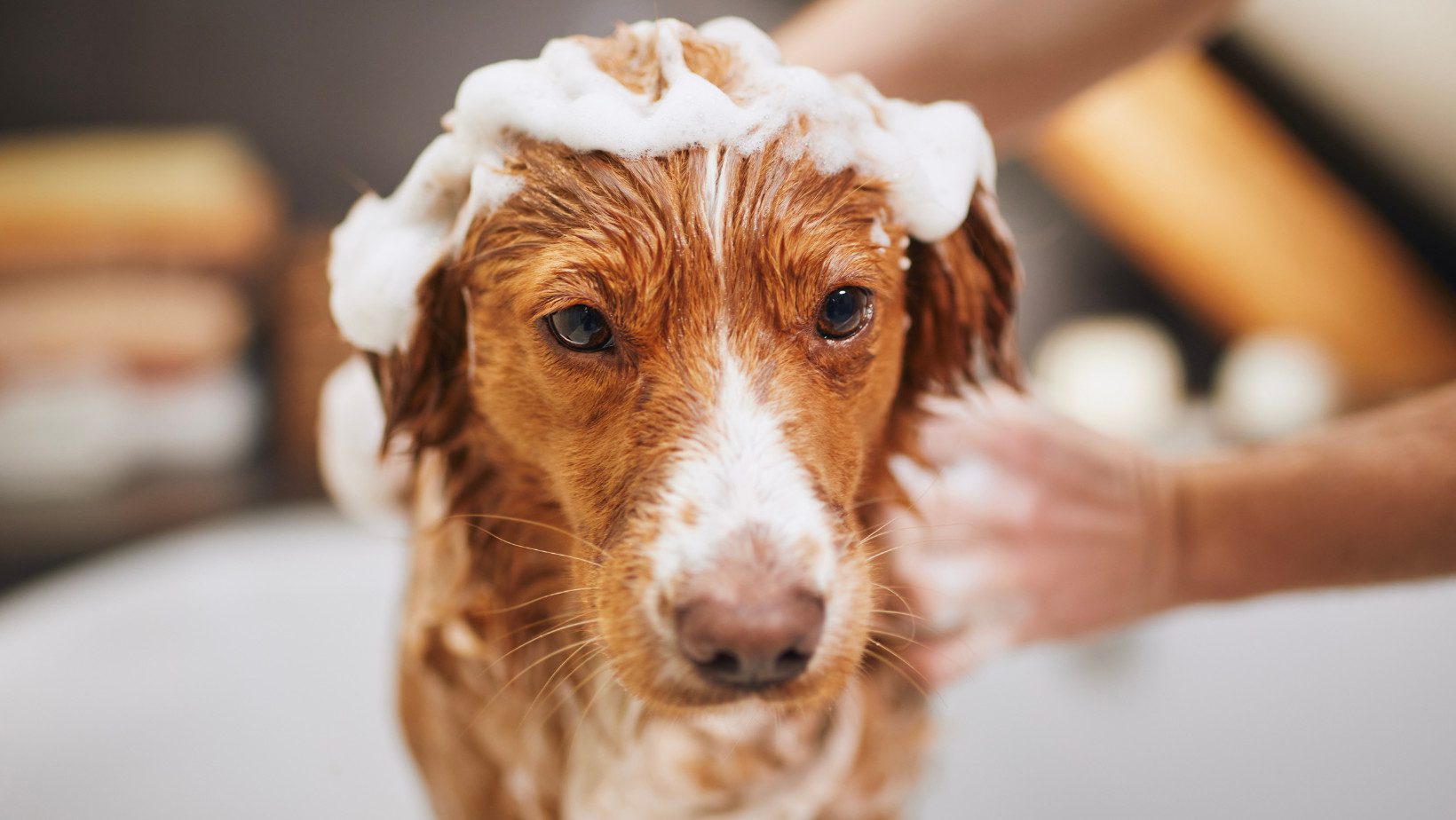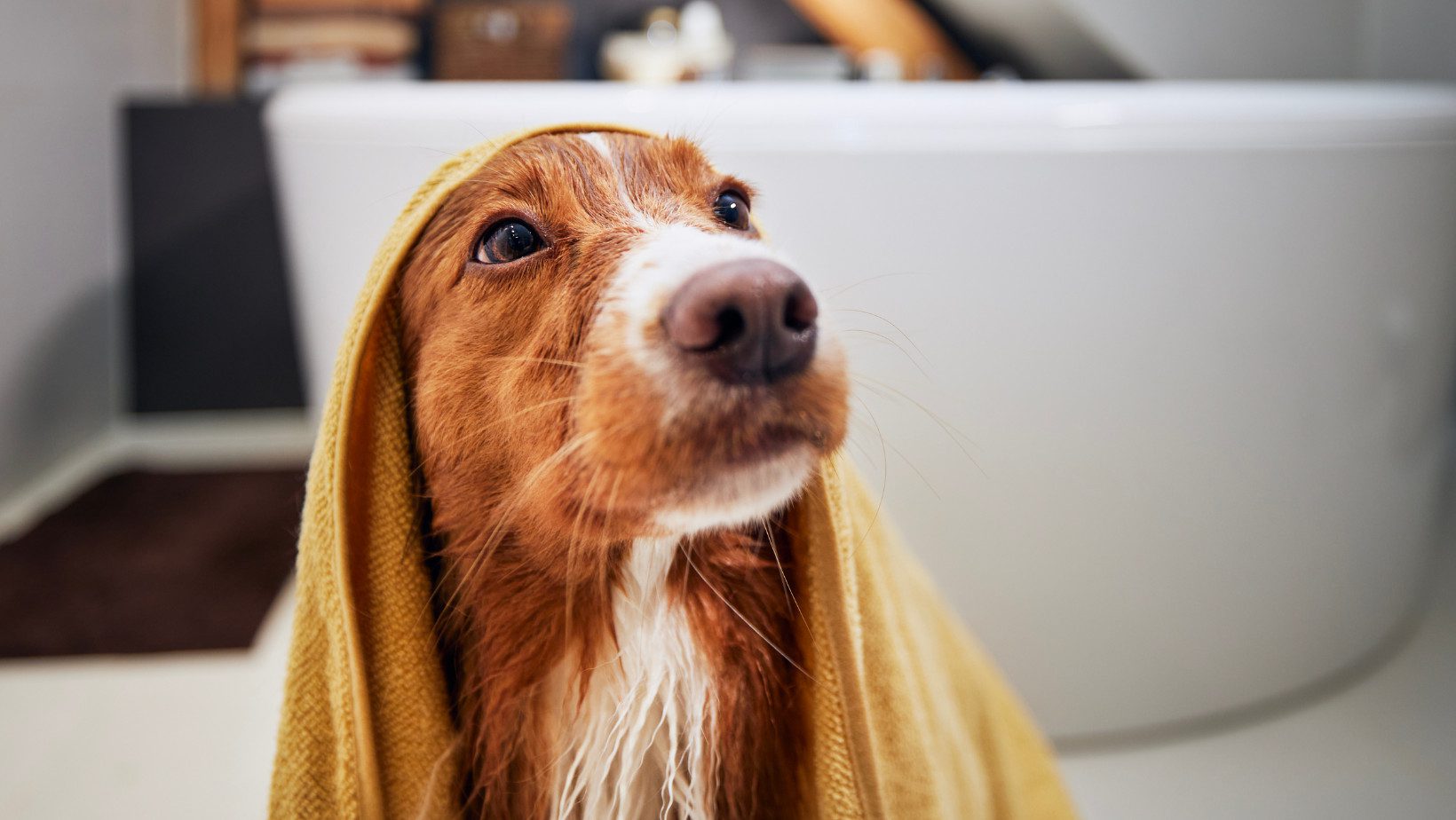When it comes to our beloved canine companions, we all know the joys of a wagging tail, the comfort of a warm snuggle, and the fun of a playful fetch session. Yet, beyond the belly rubs and the endless love, there lies a significant responsibility – maintaining your dog’s hygiene. While it might not be as entertaining as a game of tug-of-war, keeping your dog clean is equally important. In this post, we’ll dive into the importance of dog hygiene and how you can ensure that your fur buddy remains squeaky clean.

1. The Importance of Dog Hygiene
A clean dog isn’t just about avoiding that infamous “doggy smell”; it’s also about maintaining their overall health. Just as our health is connected to our cleanliness, dogs too can suffer from various ailments due to poor hygiene. Skin infections, ear infections, and dental problems are just a few issues that can arise from neglecting your dog’s hygiene.
2. Regular Bathing: More than Just a Splash
You might have heard it said, “A clean dog is a happy dog,” and while they might not always show it during bath time, this statement holds water (pun intended). Depending on your dog’s breed, activity level, and any underlying health issues, the frequency of baths will vary. However, a general guideline is:
- Short-haired breeds: Once a month
- Long-haired breeds: Every two weeks
- Active outdoor dogs: As needed (after muddy adventures, for instance)
Remember, using a dog-specific shampoo is vital. Human shampoos can disrupt the natural pH balance of a dog’s skin, leading to irritation.
3. Dental Care: More than Just a Winning Smile
Doggy breath might be a running joke among pet owners, but did you know that poor dental hygiene in dogs can lead to severe health issues? Regular brushing, dental chews, and even professional cleanings can keep your dog’s teeth sparkling and their gums healthy. Ideally, aim to brush your dog’s teeth several times a week.
4. Ear Checks: Listen Up!
Dogs, especially those with floppy ears, are susceptible to ear infections. Weekly ear checks can help spot any signs of infection or parasites. If your dog’s ears seem dirty, wipe them out with an ear cleaner recommended by your vet. Be gentle, and never insert anything into the ear canal.
5. Paws and Claws: A Step in the Right Direction
Those cute little paws can harbor bacteria, especially if your dog loves to dig or play outside. Regularly check their paws for any signs of injury, and keep the nails trimmed. Overgrown nails can lead to pain and posture problems.
6. Grooming: Beyond Just Looking Good
Whether your dog has short fur, long hair, or something in between, regular grooming helps remove dead hair, stimulates the skin, and allows you to check for any underlying problems like ticks, fleas, or skin issues. Consider brushing your dog several times a week or more if they have long hair.
7. The Bottom Line (Tail End!)
Just like us, dogs feel better when they’re clean. They might not appreciate the bath at the moment, but they certainly enjoy the after-effects – feeling fresh and itch-free. Your dog relies on you for their well-being, so let’s make hygiene a priority.

In conclusion, dog hygiene care goes beyond just keeping your pet looking good; it’s a direct reflection of their overall health and happiness. By incorporating these practices into your dog care routine, you’ll be ensuring that your four-legged friend remains vibrant, healthy, and ready for many more playful days ahead!
